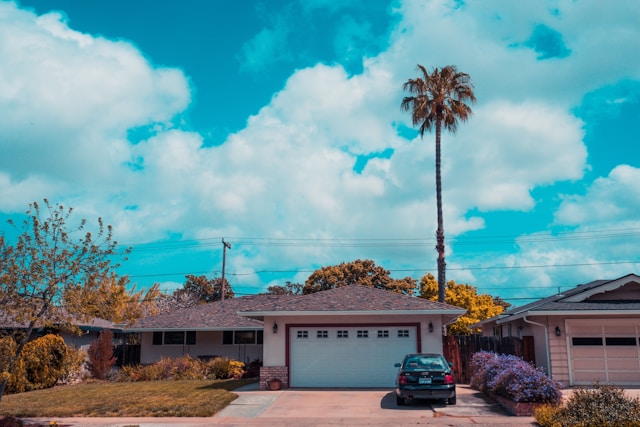The garage is one of the most versatile value-adds to a property. But did you know that under certain circumstances, it may not be covered by your insurance? We all have ‘that’ room, the one where junk is stored, or tools are kept, and this is very often the garage. Some homeowners even convert the garage to a granny cottage or use it as an entertainment facility or a creative environment for DIY, repair or creative projects.What you keep in your garage might also be valuable: bicycles, lawnmower, washing machine etc, and these items should be covered by your home contents insurance. Obviously a motor car or motorbike are covered by your separate vehicle insurance.
But, did you know that if your garage is detached from the main dwelling, it is seen as an outbuilding and there is limited cover applicable for all those non-vehicle items in the event of theft (not burglary)? This is explained by Marius Kemp, Head: Personal Underwriting at Santam. Kemp says that it is quite acceptable to use a garage for storage in terms of a homeowners contents insurance policy in Santam’s case, but there are conditions. “This is catered for by Santam’s house contents insurance, however, the garage must be directly linked to the main dwelling with an inter-leading door between the garage and the main dwelling so as to enjoy cover on the same cover terms and conditions as the main dwelling. Risk threats “The client has an obligation to disclose all information that affects the risk based on the information provided. If, at claims stage, it is determined that the client did not disclose or misrepresented the risk and it is material to the loss, a claim may be rejected,” says Kemp. “When applying for insurance, the insurer will likely ask about the extent to which your garage is protected: whether it is lockable; is it protected by an alarm system and to what extent, etc. It is very important to ensure that the house contents sum insured, is adequate to provide cover at new replacement value in the event of a claim,” says Kemp. Advice is to make your garage less vulnerable to break-ins by adding internal bolts and possibly an independent alarm system if the garage is detached from the house.
Fire warnings There is also a duty of care clause in these insurance policies. This refers to the obligation on the owners of the policy to take reasonable proper care of their property and goods. Fire hazards are those such as oil, lighter fluid, lawn mower fuel, and yes, even paints. Again, if you don’t store these types of liquids correctly, they can cause fire either by the surface contact with a leaking combustible liquid or via flammable vapours. Manufacturers suggest storing such liquids in containers that are clearly marked or colour-coded, are durable, and tightly sealed. They should also not be stored next to heat sources, be those appliances, heaters, or even direct sunlight. Good ventilation is also key. Another fire threat in the garage is the electrical board. If the garage is detached from the house, it may have its own electrical circuit, which needs to be compliant with current standards. Beware of overloaded electrical outlets and running of extension cords that may have been stored incorrectly and are bent as they too pose a threat if internally damaged. Vehicle damage Note that your vehicles are not covered by the homeowners policy, regardless of whether parked in a garage that is destroyed by fire for example. These will be a separate claim on your car/motorbike insurance policy.
Article by: www.privateproperty.co.za Image Via: www.unsplash.com

